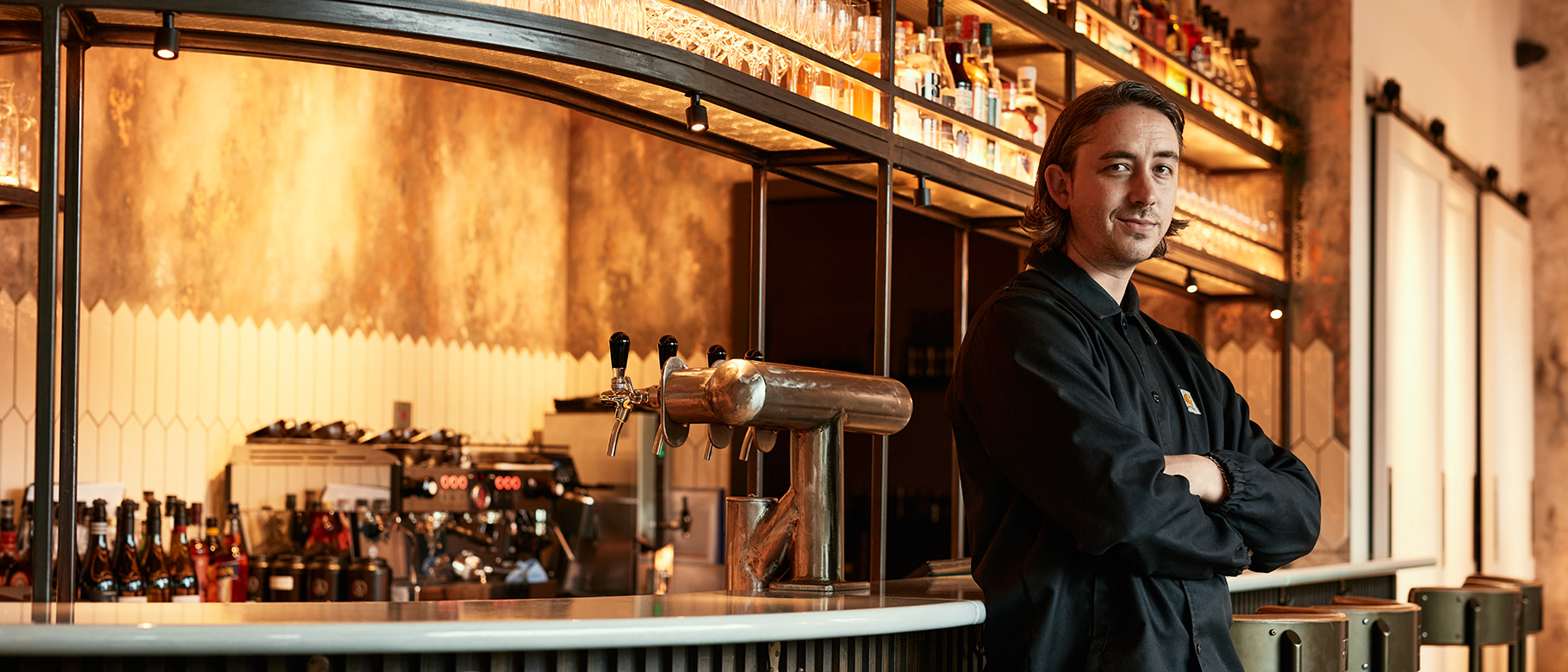

There aren’t many chefs who can claim to have owned three restaurants aged just 29, but Will Bowlby is one of them. Now 33, the co-founder and head chef of Kricket, a modern, relaxed Indian concept with restaurants in London’s Soho, Brixton and White City neighbourhoods, has always been a go-getter. He took on his first head chef position cooking elevated European food in Mumbai, India, when he was just 24, and launched Kricket with his business partner, Rik Campbell, just two years later.
Back then, the pair spotted a gap in the market for high-quality Indian food that sat comfortably between the few fine-dining Indian restaurants in London, and the city’s proliferation of local neighbourhood curry houses. Today, Bowlby’s restaurants are routinely booked weeks in advance and rave reviewed. Plus, he also has a Kricket cook book and regular foodie TV appearances to his name. His route through a notoriously tough industry is fascinating, as is his philosophy on food and on running well-loved, modern restaurants. Here, in his own words, are some of the things he’s learned.
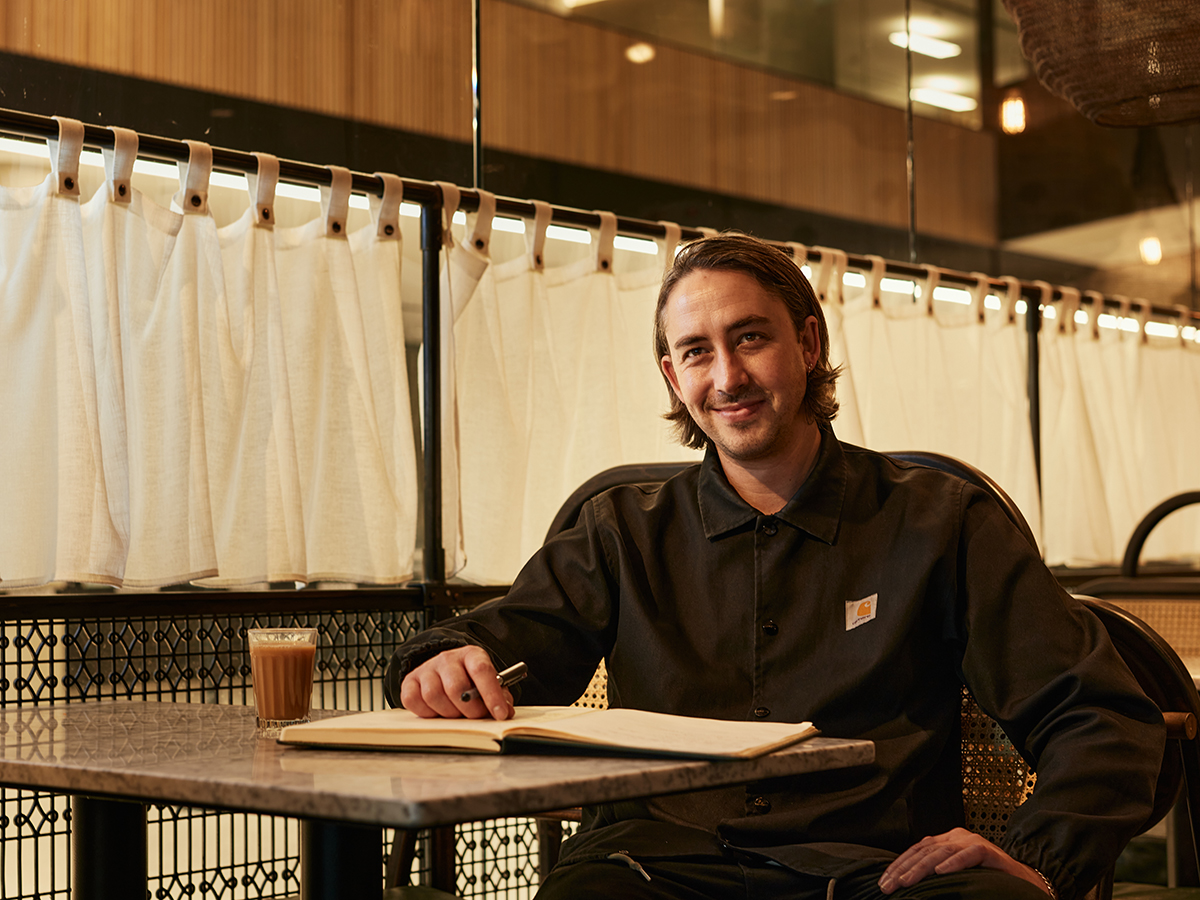
“I first got into food when I was about 10-years-old, when Jamie Oliver came on the scene. I thought what he did was cool – he made the idea of cooking a bit more accessible to a lot of young guys. Straightaway, I thought: ‘That’s something I’d like to do’. My family were important influences too. My Mum was a great cook, as was my grandmother who lived near me – she used to do lots of curries and stews. She used to write all her recipes down – I’ve still got all her cookbooks”.
“When I turned 16, I set up a catering company to fund my way through uni. It was called Will To Cook and I would go to people’s houses and cook dinner parties for anyone from six to 50 people at a time. I did that at the same time as studying business management. I chose the subject because even back then I knew I wanted to run a restaurant.”
“Straight from uni, I got a job at Le Café Anglais under Rowley Leigh. I approached him for some advice, and he offered me a job on the vegetable section. I started there at Christmas, so I was thrown in the deep end – it was tough. I spent two years there after that and learned the ropes on every section. It was pretty scary at first, I didn’t say a word for about a year…”
“Regardless of what kind of chef you want to be, do a couple of years of classical training first. It gives you the tools to do whatever you want.”
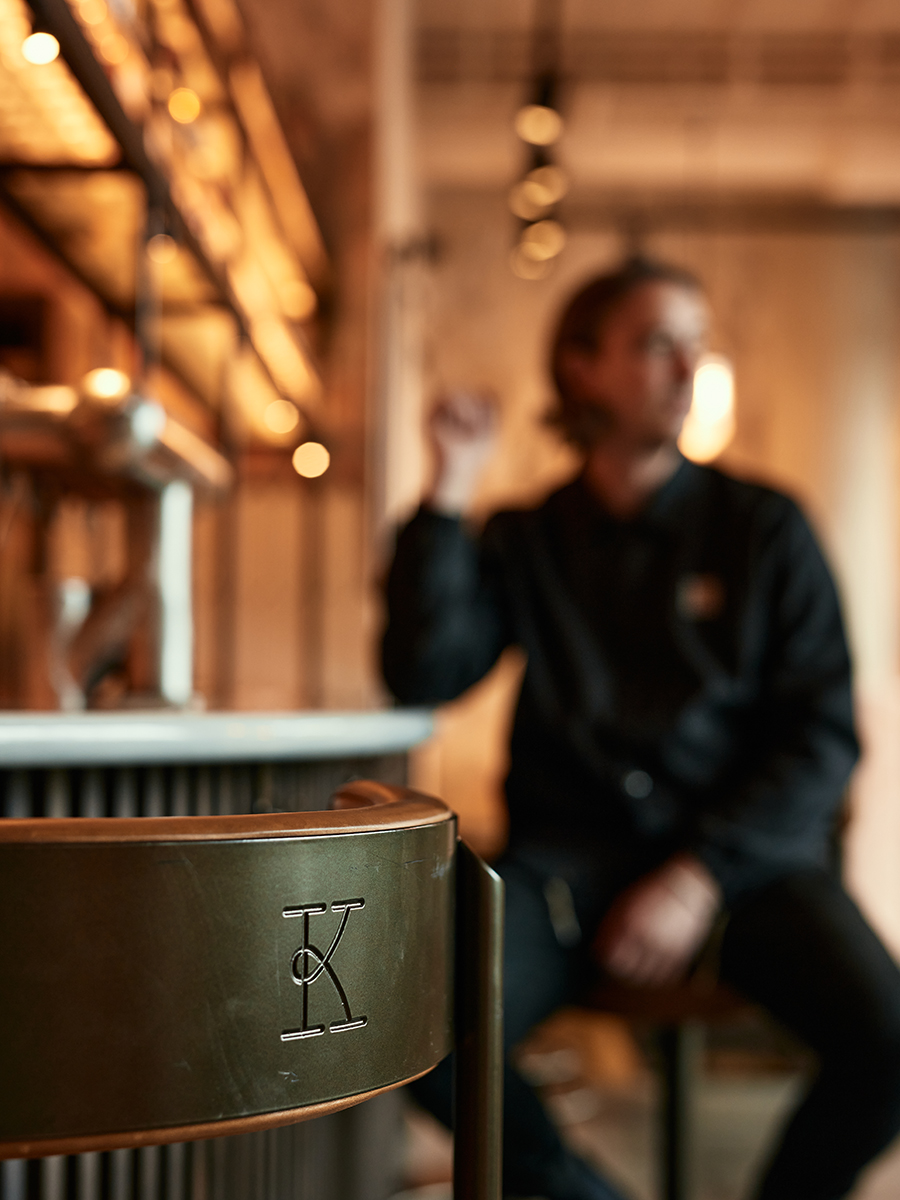
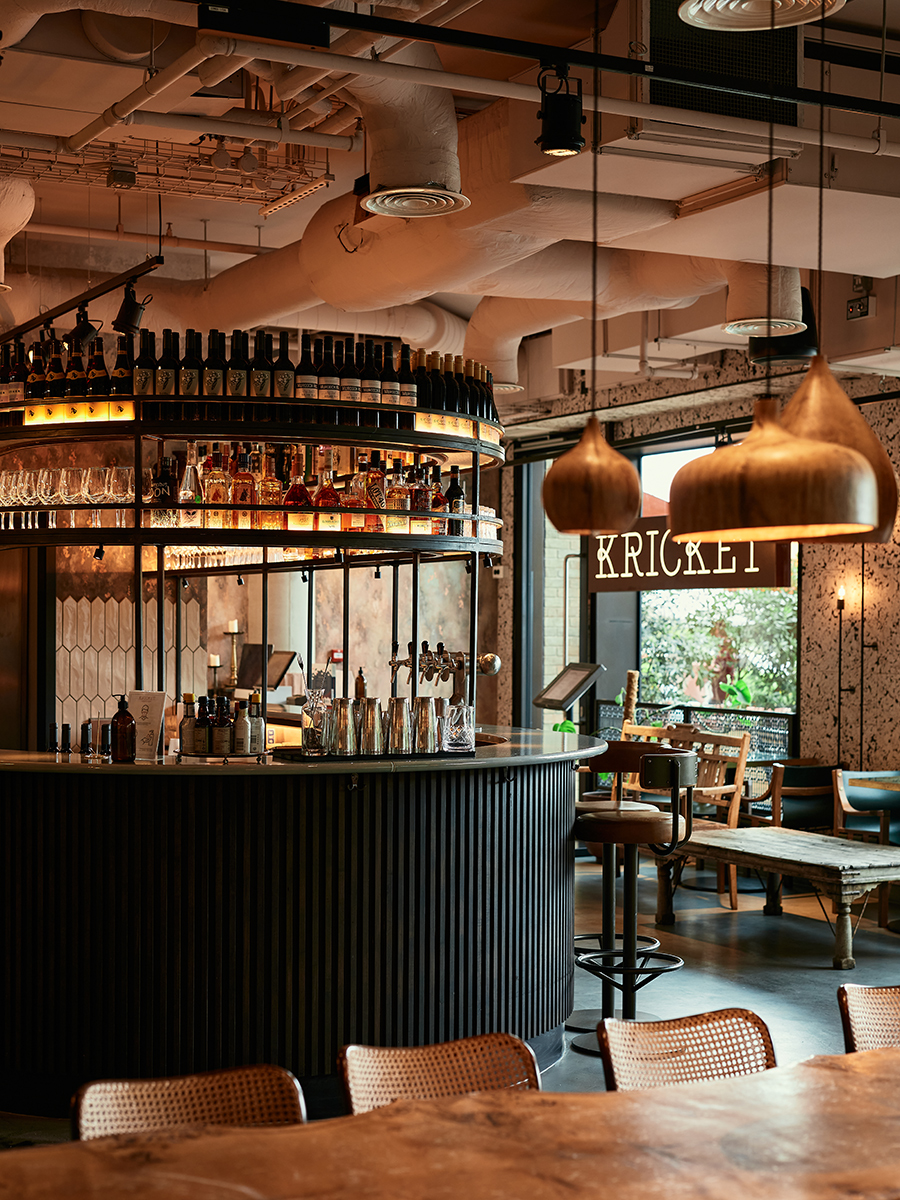
“When I moved to Mumbai, I was very under-qualified. I mean, I was just 24-years-old. I’d done two years in a professional kitchen. But, I thought it was an interesting opportunity. My attitude was ‘if it doesn’t go well, you can just fly home’. It was a culture shock, and I found myself pulled in lots of different directions. Sometimes it was great and sometimes it really wasn’t. Towards the end, there was too much interference in the menus I put together, plus I caught a parasite which took months to treat, and I made the call to come home.”
“We set up Kricket to fill a gap in the market – casual, but refined Indian-inspired food. I’ve no interest in doing something super high-end, we set this up to be relaxed. Generally speaking, more and more restaurants are coming up now where you can eat really great food in a fun environment – and why shouldn’t fun be a part of eating out?”
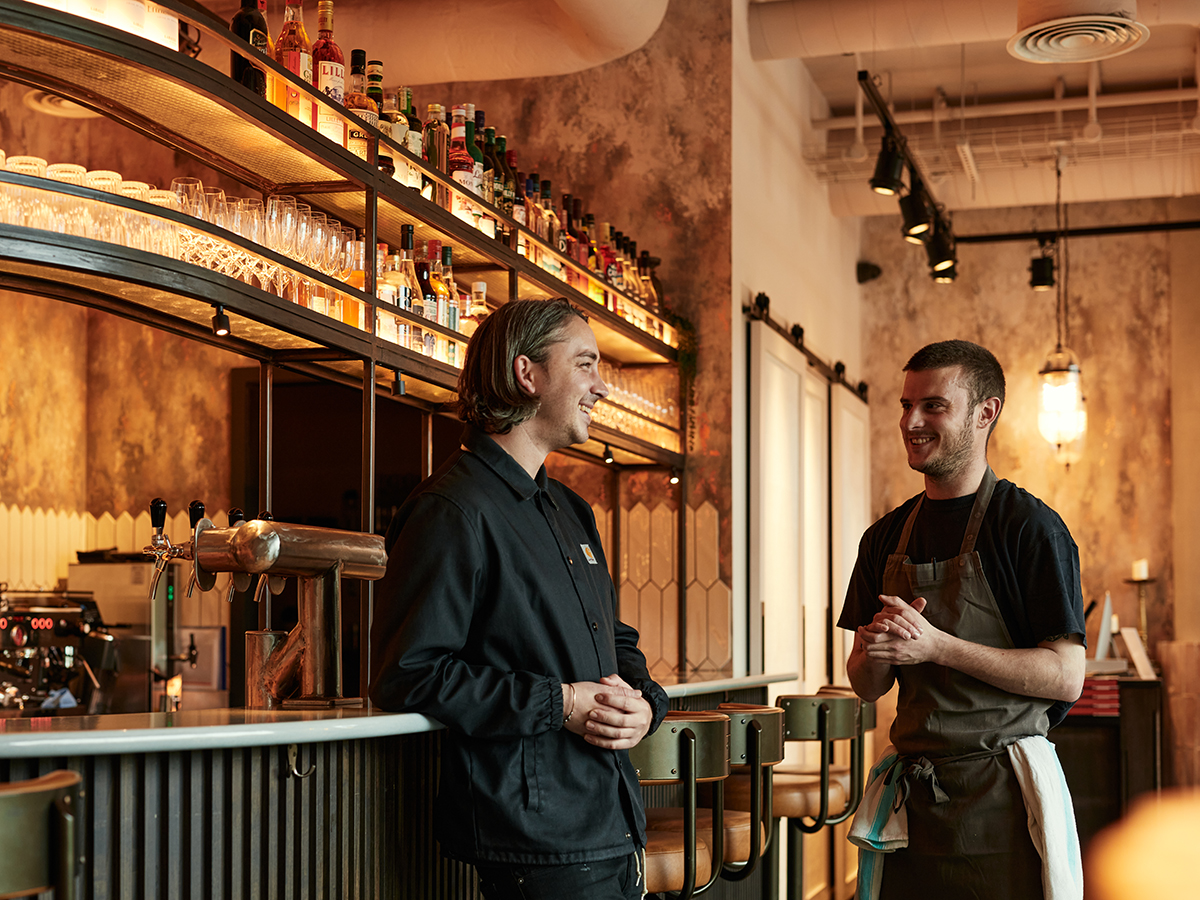
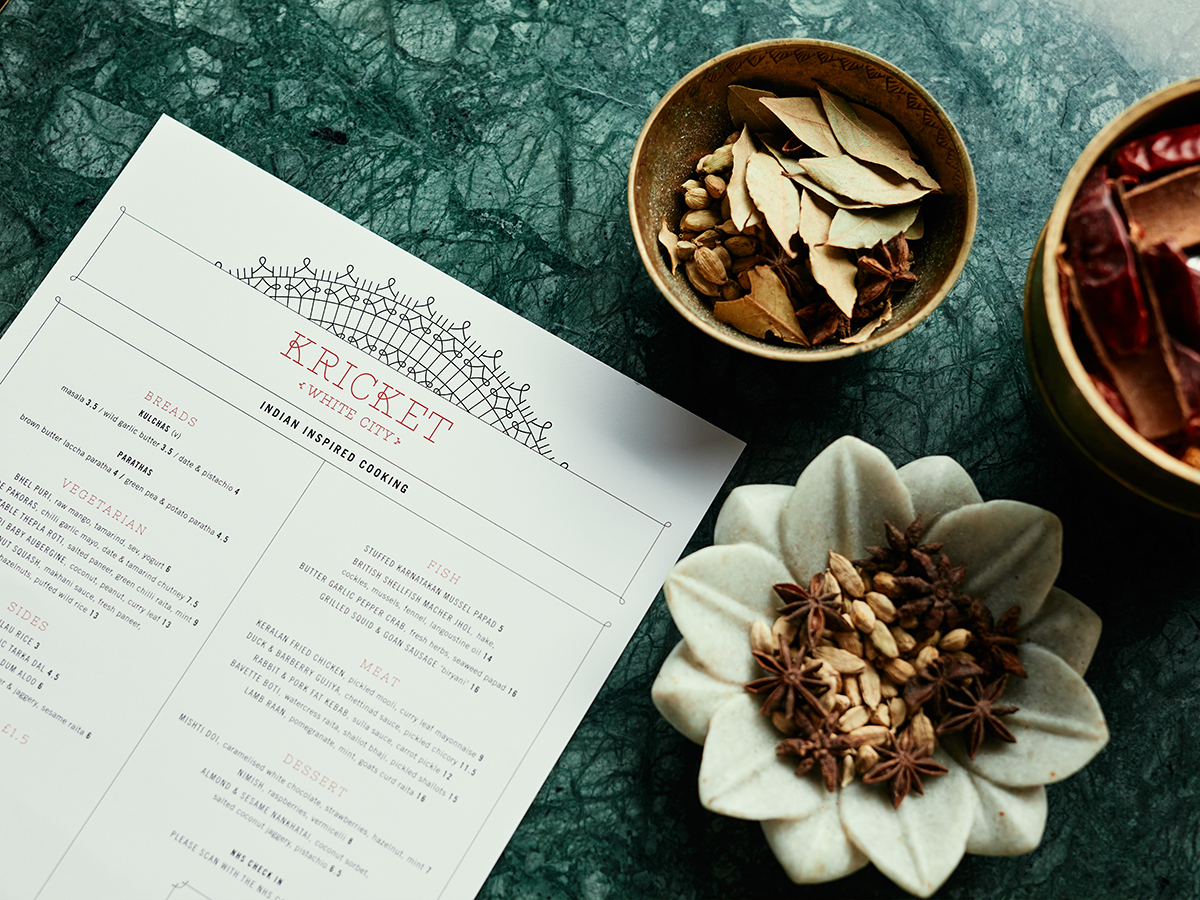
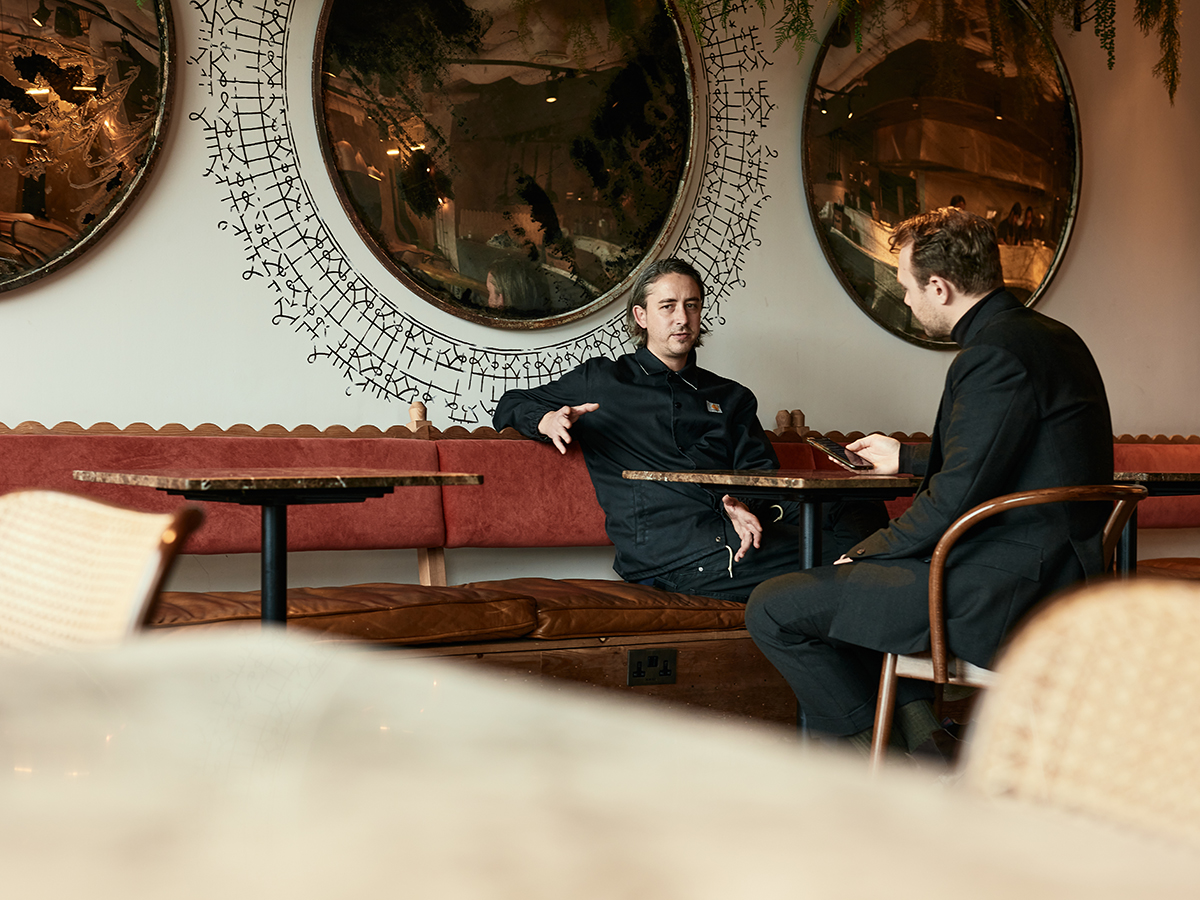
“The basic philosophy behind our cooking is to elevate Indian-style dishes with local British produce. We try not to mess around with the flavours too much, we try to stay authentic and have respect for the ingredients we use. In fact, most of our dishes start with one seasonal ingredient we want to use, which we then build around. It’s important not to overcomplicate things.”
“In Indian cuisine, the term ‘spice’ is misleading. It makes you think of chilli and heat, when in fact ‘spices’ are a whole variety of things – you have to learn how to use them to create layers of flavour, rather than a single overpowering hit of something.”
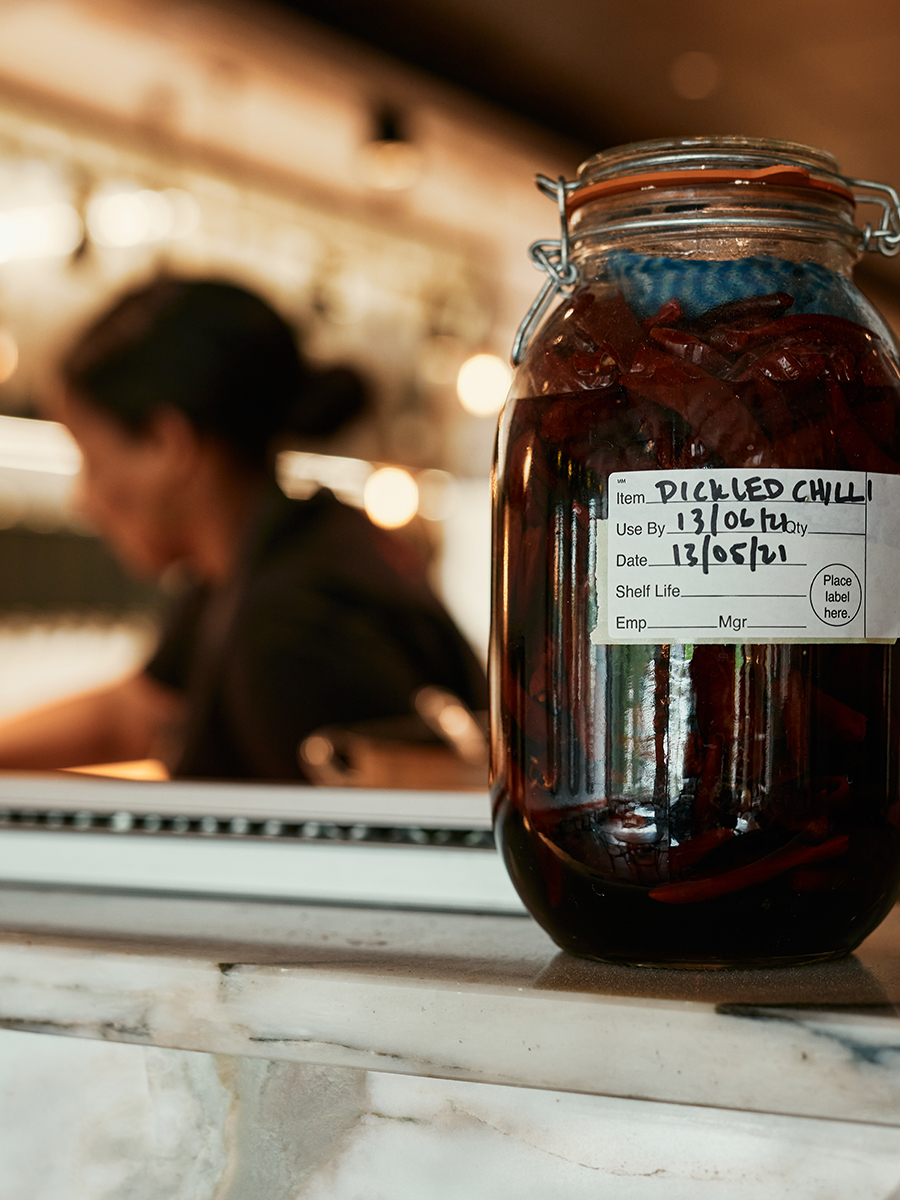
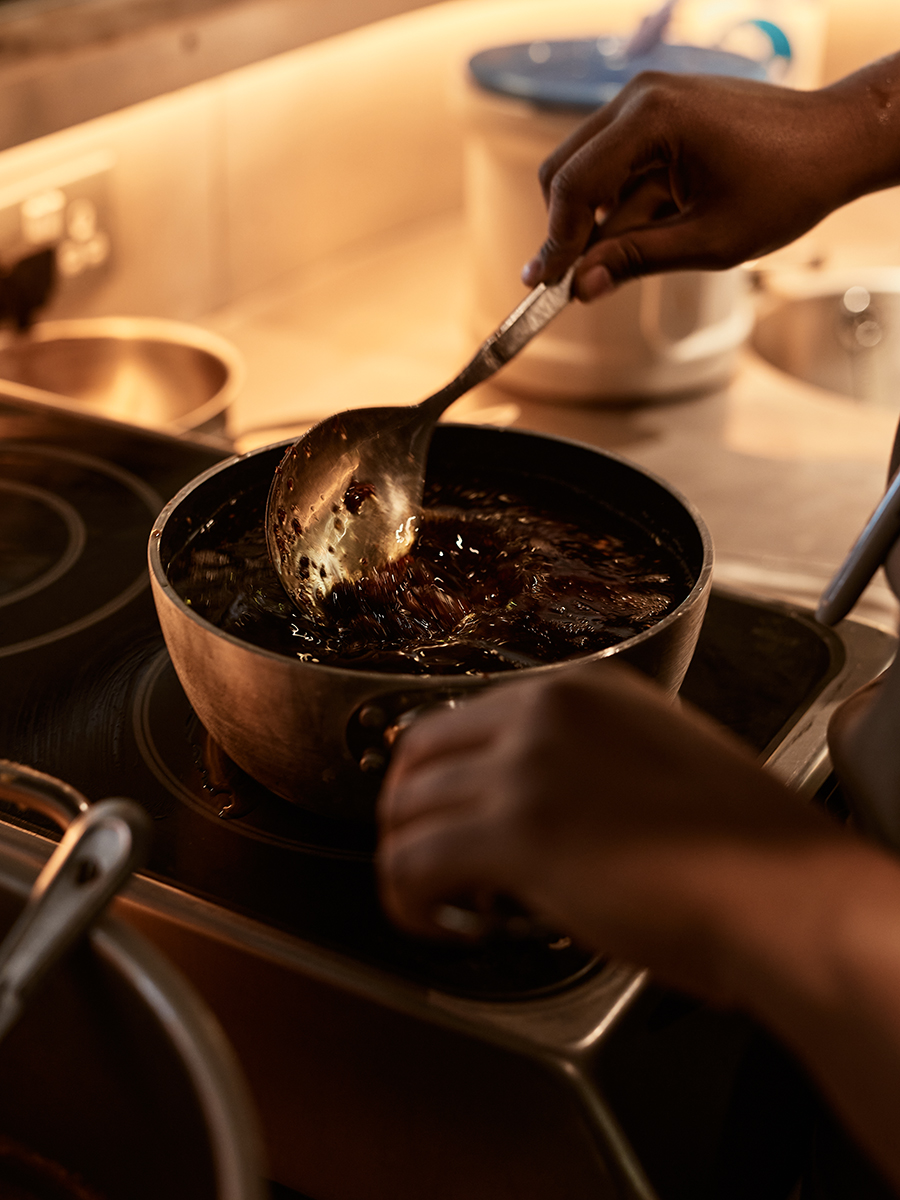
“I try to run egoless kitchens. Sure, you can be a great chef and have an ego, but I think it also helps to not have one, and to realise that you can never know everything and there’s always something else to learn.”
“We keep on top of all our restaurants by having a really strong team. When we started the business it was just me and Rik, we did everything. Now, we employ 80-plus staff and it’s all about them. We really try to invest in our people and help them to grow. Personally, I try to be in one of the restaurants every day, and do a few shifts a week in the kitchen. It’s good for me and it’s good for the team to see me there.”
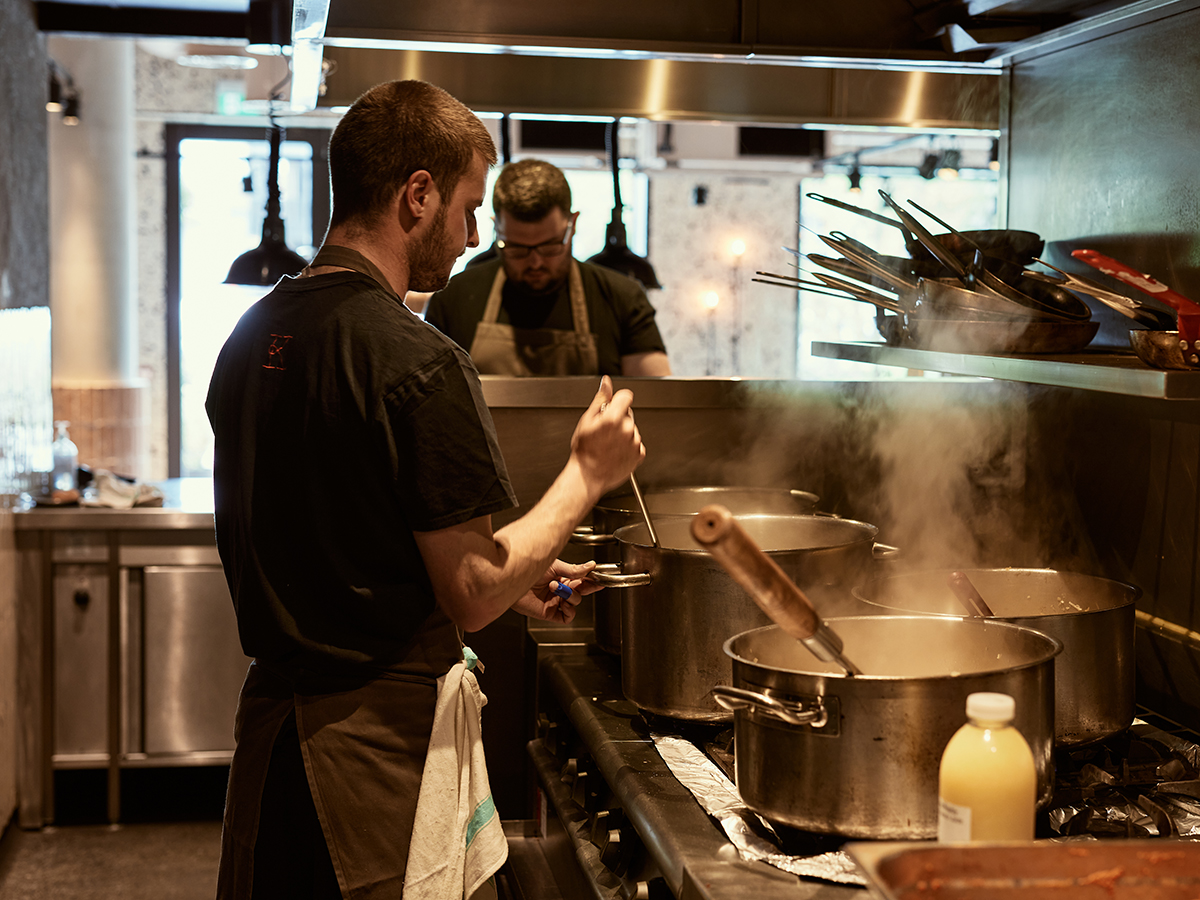
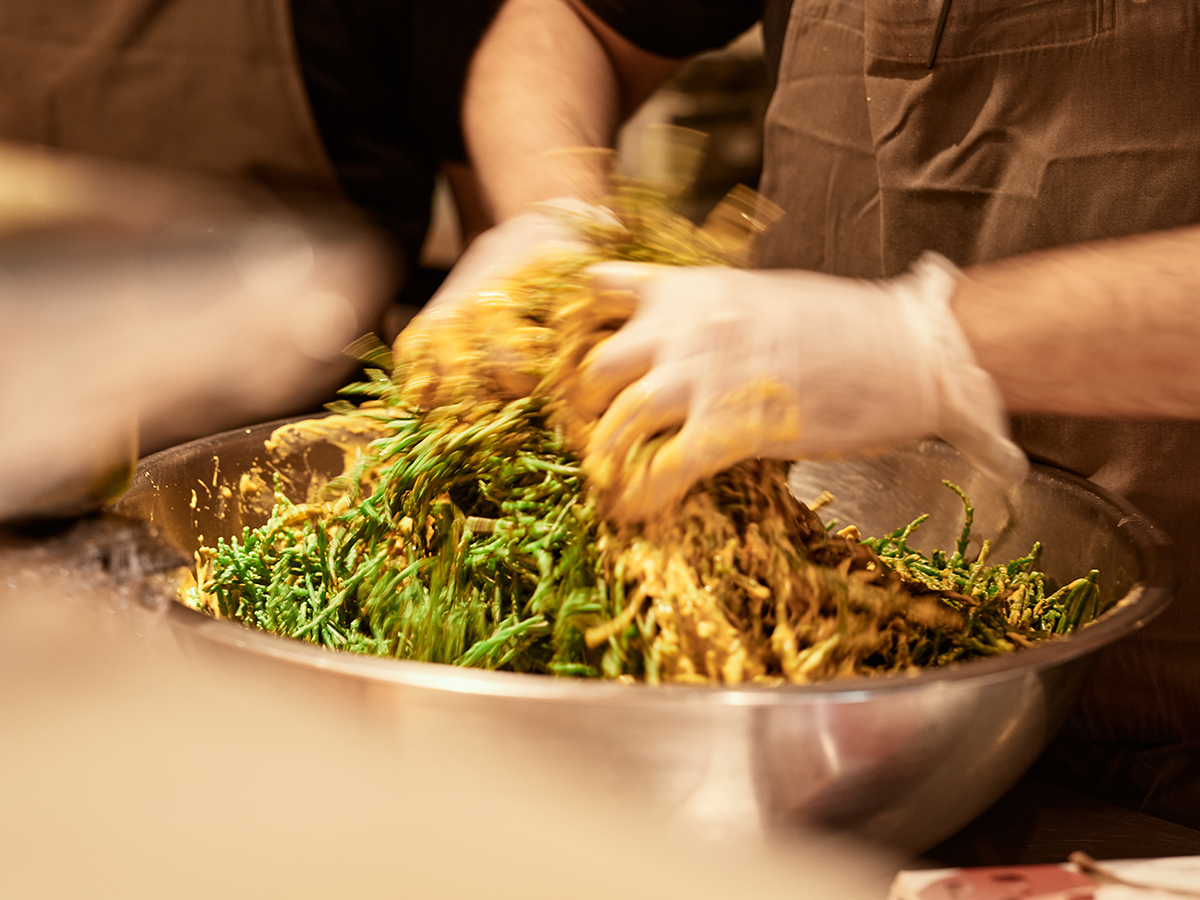
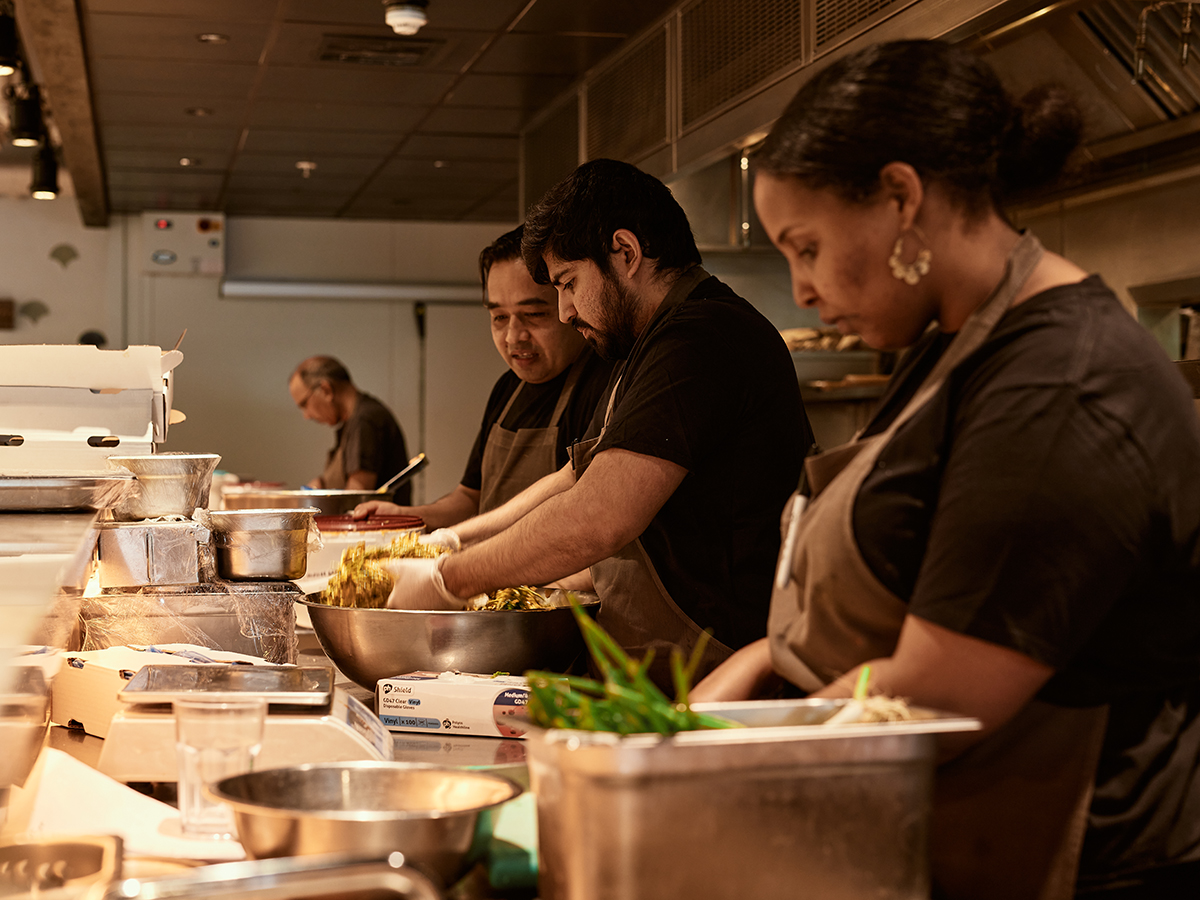
“In order to tell your staff what to do, you need to have done it yourself. You have to be able to set a good example. Over the past few years, I’ve learned a lot about management skills in terms of understanding how people work – and also realising that not everyone will work exactly like I do. You need to lead with empathy.”
Book at a table at any of Kricket’s three London restaurants by visiting kricket.co.uk
(Photography by Tom Griffiths)
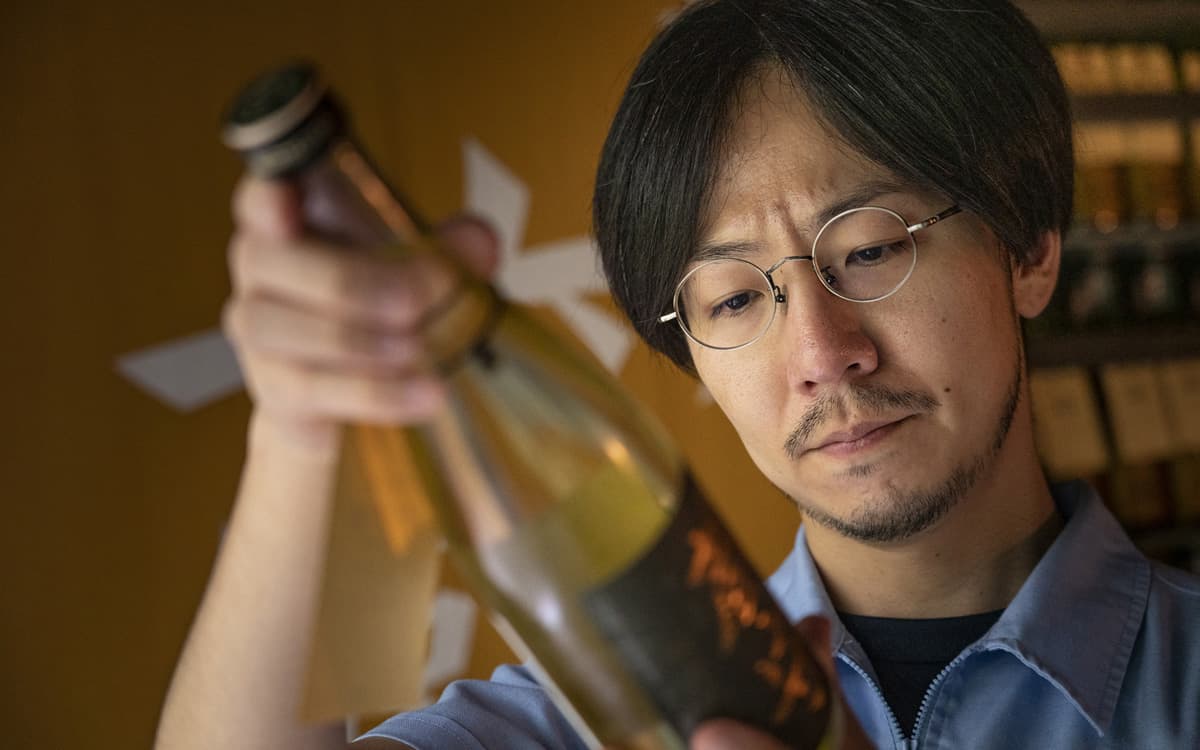
Sawanoi Sake: A Lifetime in the Making
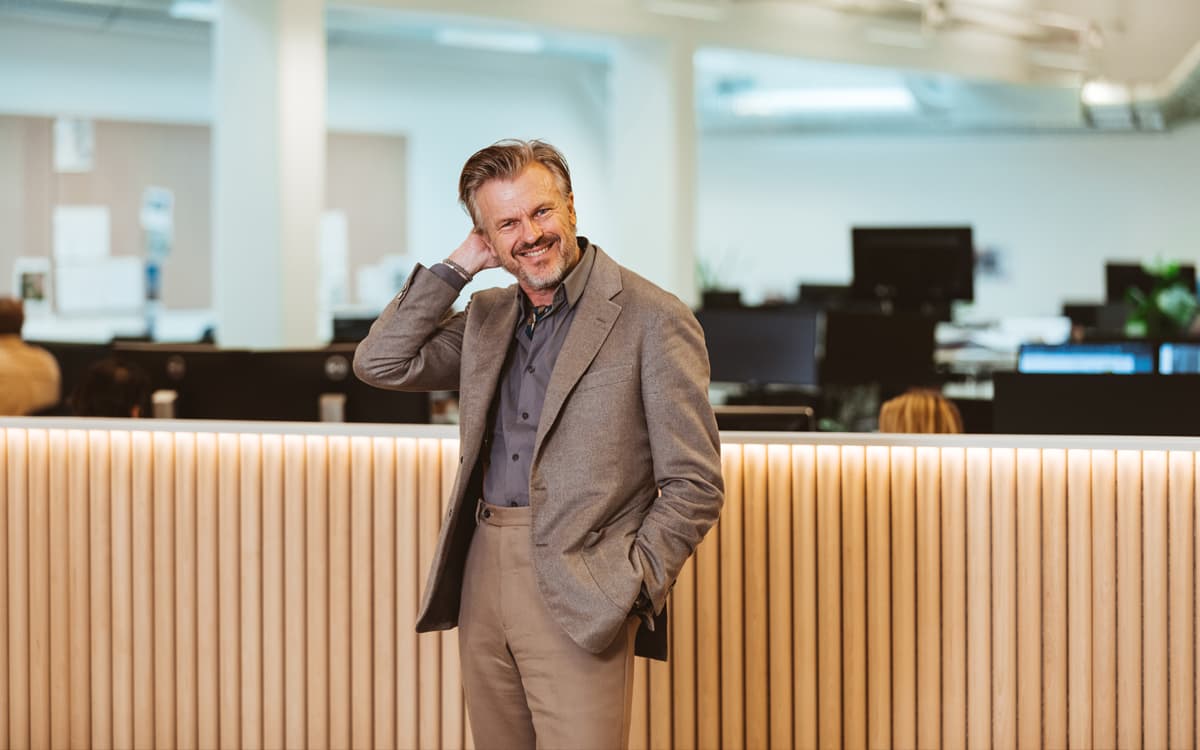
Thomas Sandell: Designed for life
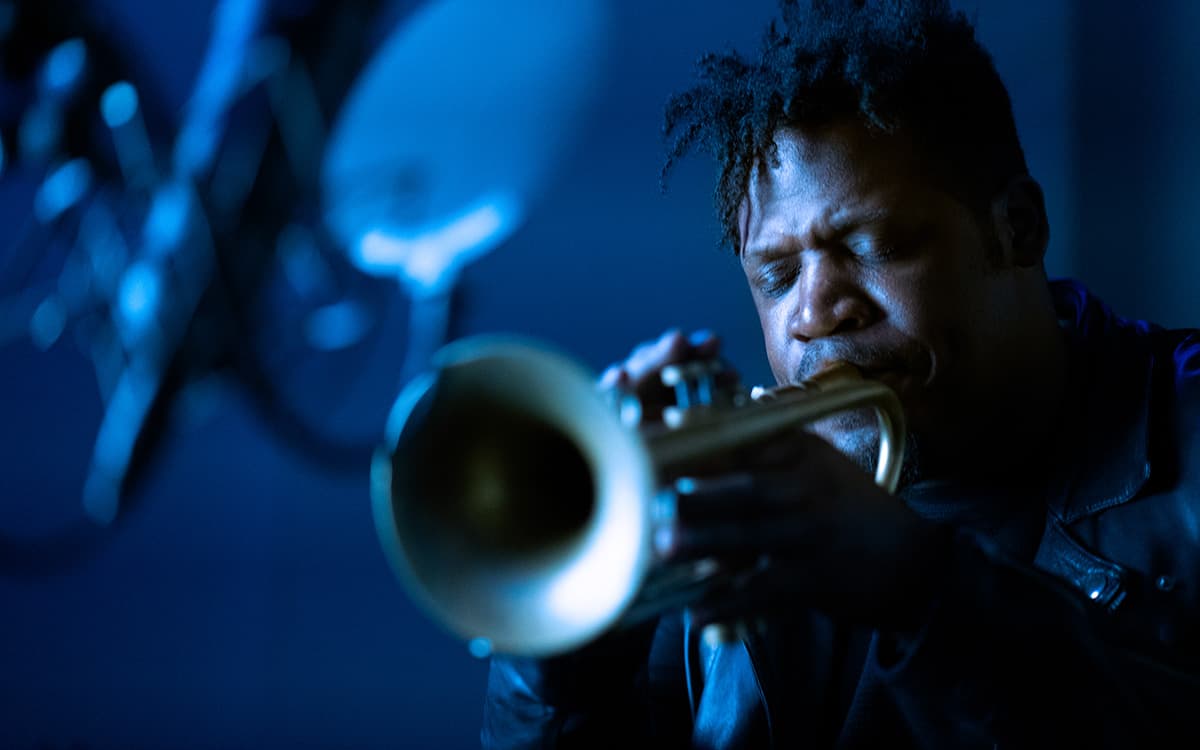
Bold as brass
Cotonificio Albini S.p.A. - Via Dr. Silvio Albini 1, 24021 Albino (BG) – Italy
Società con unico socio - diretta e coordinata da Albini Group S.p.A.
P.I. 01884530161 - C.F. 08743540158 - Iscritta al Registro Imprese di Bergamo - REA 244649
Capitale sociale sottoscritto e versato € 11.170.960